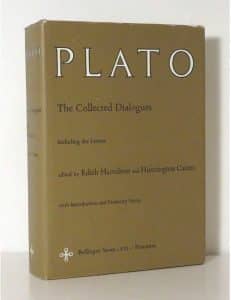Philosophy Books: 21 Must-Reads (and How to Remember Them)
Description
 If you’re looking for the ultimate list of must-read philosophy books, you’re in the right place.
If you’re looking for the ultimate list of must-read philosophy books, you’re in the right place.
I’ve been reading diverse works of philosophy since I was very young, starting with Albert Camus.
In fact, reading Camus at age fourteen is perhaps too young!
It started with stumbling on The Stranger at the local library while skipping school. It’s a quick and easy novel, but also tremendously profound.
At the back of the novel, the author bio talked about Camus’ work in existentialism, so I went on to read The Myth of Sisyphus and his other novels.
Although I didn’t understand much of his philosophy at the time, it introduced me to an entire world of writing about thinking. I was hooked.
And now I want to share with you my top philosophy books, why they matter and some of the key points that have stuck with me.
Not only that, as a memory expert, I’ll share with you how to remember their titles and key points as well.
Ready?
Let’s get started!
21 Must-Read Philosophy Books That Will Stick With You
Before we dive in, a quick reality check:
Can anyone really rank the “greatest” philosophy books of all time?
Probably not.
Why?
Because in philosophy, as in science, it doesn’t really matter who identifies the truth. As many of the philosophers you’ll discover today point out, it’s the process that matters.
This is one reason why philosophy is quite different than what we find in religious books. True, many books from religious traditions contain philosophy.
But when defining philosophy to the best of our abilities, philosophy always boils down to something we do. It’s not about final pronouncements or producing good feelings psychologically. Philosophy is about creating concepts with an attuned awareness of how our reading influences the concepts we develop.
Why This List Isn’t Just About Famous Philosophy Titles
When it comes to philosophy as a process of creating concepts, I am influenced by Gilles Deleuze.
I believe he’s right and find that various philosophies are most important when the philosopher at hand is working on new concept creation.
Plus, as you’ll see, I’m also influenced by ancient thinkers and people like Nietzsche that at some level, we don’t even do that. Rather, philosophy does us.
I’ll explain more of what I mean as we go through this list.
One: Plato’s Dialogues
Getting to attend university was an extraordinary opportunity. But it wasn’t until my second year that I chose a major, which at that time was Political Science.
The first reading I was assigned was Plato’s The Republic.
It’s an extraordinary read that takes you into deep ideas by questioning just about everything. As you follow its various debates, The Republic demonstrates how to become an effective debater yourself.
It’s difficult for me to underscore the influence this book had on me during my early years as a university student.
I went to the professor as soon as I was done reading it and asked for more.
She told me that Plato had written a ton of dialogues and suggested the Edith Hamilton and Huntington Cairns edition of Plato: The Collected Dialogues.

All of the dialogs are worth reading, but my favorites are The Republic, Sophist, Ion and Lysis.
Lysis was particularly important for me many years later. It has a lot to do with friendship, which is the topic I ultimately wrote my dissertation on.
In terms of core ideas, there’s so much to highlight, and that’s one reason I make this my top recommendation. A major benefit of reading Plato beyond just a few dialogues is that you get to see just how old certain unresolved problems are.
It’s not that there’s “nothing new under the sun.”
Rather, you experience just how nimble the ancient mind was and how little our capabilities have changed. Although you would think our current concerns about technology would be very different, the core anxieties are right there back circa 427-348 BCE.
Pro-tip: To help make Plato’s ideas more memorable, take some time to read about the Pre-Socratics. A lot of what you find in Plato is a reaction to what philosophers like Thales, Anaximander, Heracleitus and others had to say about nature.
Two: What Is Philosophy?
Let’s skip ahead a few thousand years.
What is Philosophy? is a fantastic companion to Plato for a few reasons.
First, it helps you see how Plato created many important ideas as concepts linked to personae<span style=





